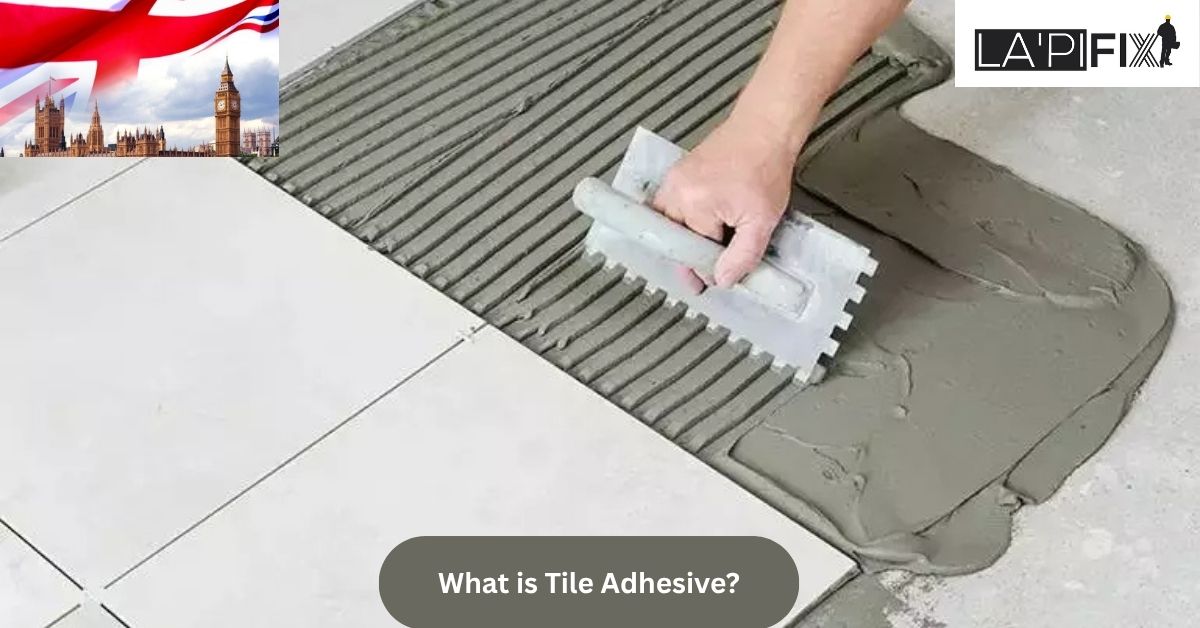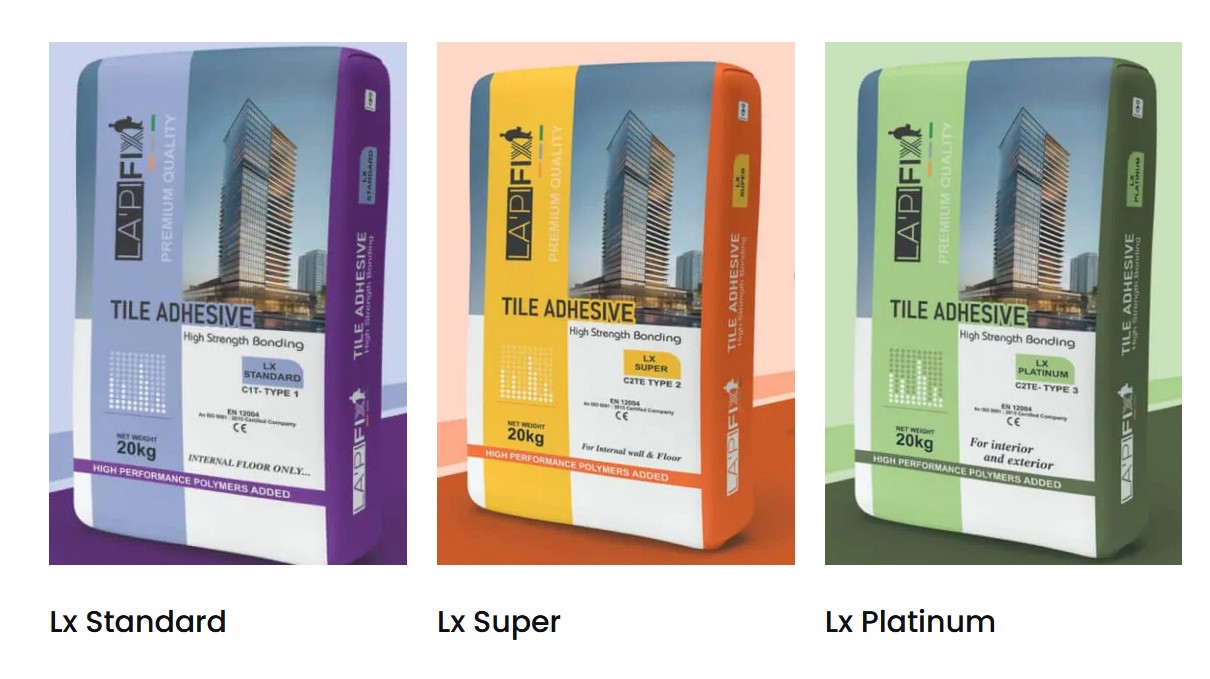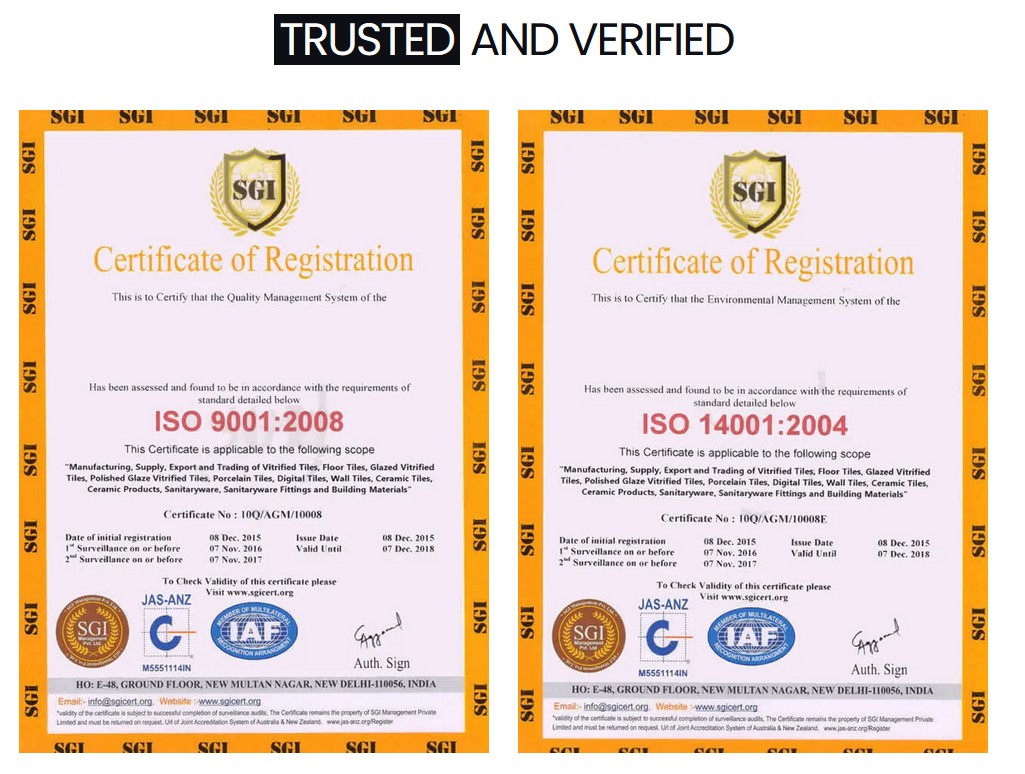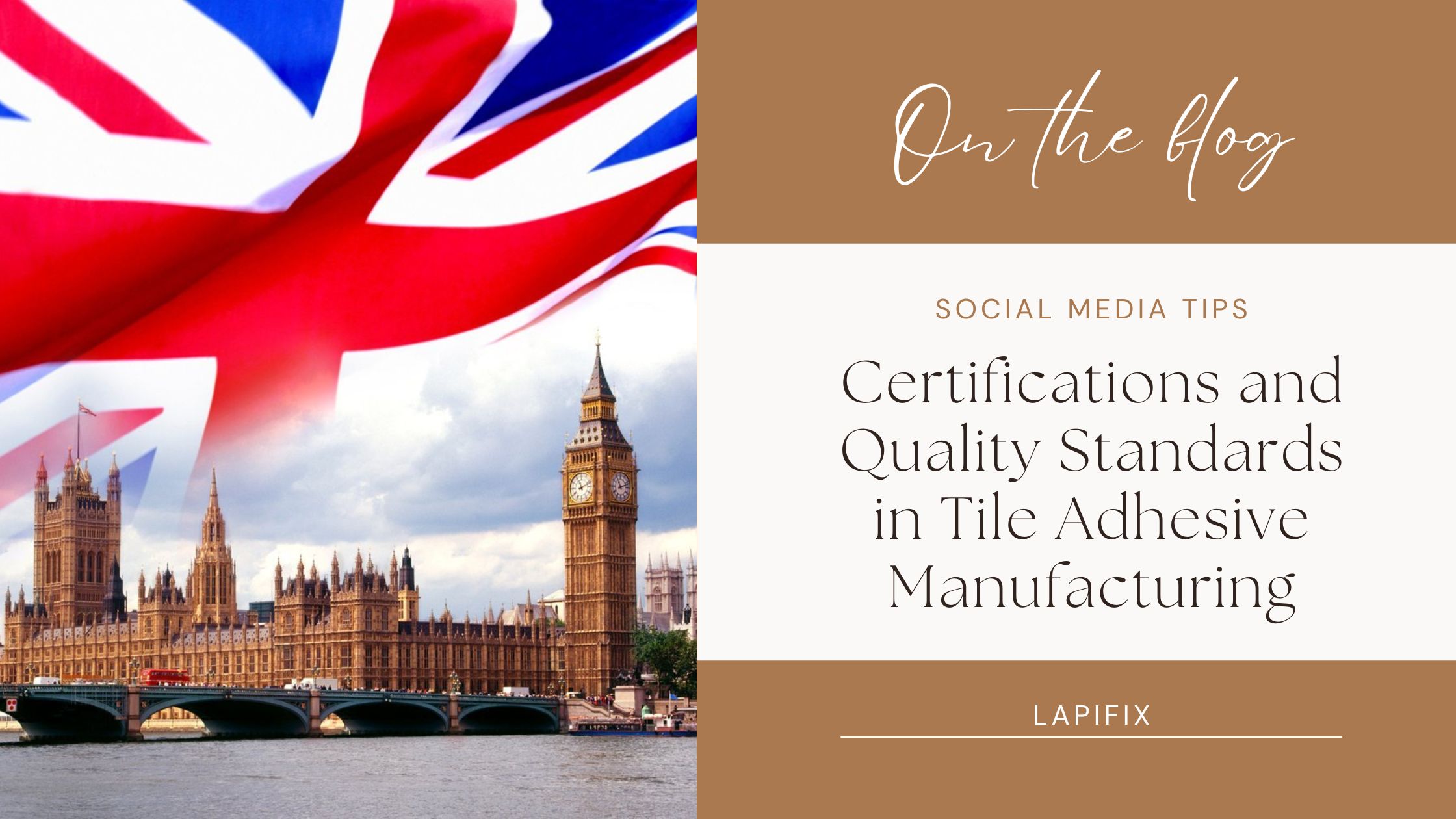Introduction
Working with tiling would not be possible without tile adhesives in the UK construction and renovation industry. For any renovation project, whether in London or Manchester, using quality adhesives will make your tiles remain fixed, level and free of flaws for a long time. The industry in the UK is built on strong quality requirements, new eco-friendly advances and a variety of top-notch products from well-known domestic companies. This guide focuses on the manufacturing industry for tile adhesives in the UK, including different products, major brands and what’s next for the industry.
What is Tile Adhesive?

Tile adhesive keeps tiles attached to surfaces like floors, walls and countertops. It is very important for achieving durable tile installations since it holds them firmly, allows some movement and is not easily damaged by changes in the environment.
Tile adhesives in the UK usually belong to the following classes:
- Cement-based adhesives: Mixing cement-based adhesives with water makes them powder-type adhesives that are suitable for places that get a lot of foot traffic and are exposed to moisture.
- Ready-mixed adhesives: For smaller kitchen and bathroom jobs, people prefer ready-mixed adhesives since they are easy to handle.
- Epoxy adhesives: Because of their toughness and ability to resist chemicals, epoxy adhesives are often used by industry.
- Flexible adhesives: Made from polymers so they can handle movement in underfloor heating and timber floor materials.
These adhesives are made using a combination of binders, fillers, resins, and performance additives that determine their setting time, bonding strength, and moisture resistance.
Market Overview of Tile Adhesive Industry in the UK
For the last decade, the growth of the UK tile adhesive market has come from home renovations, commercial building work and people’s preference for tiled areas in all parts of the house. The industry was worth above £250 million as of 2024 and predictions indicate it will rise at a CAGR of 4–5% to 2030.
Some of the driving factors include:
- Eco-friendly construction practices: The use of eco-conscious construction approaches, including demand for adhesives rated by organizations like BREEAM.
- Increase in DIY and home improvement projects: There are more DIY and home improvement projects which helps us increase sales of ready-to-use adhesives at retail shops.
- Innovation in tile formats: Introducing larger tiles and using natural stone in design means adhesives need to be stronger and more flexible which drives the need for new and advanced formulations.
Lapifix Adhesives are some of the well-known manufacturers in the UK who supply custom solutions for tiling problems.
Lapifix Leading Tile Adhesive Manufacturer in the UK
Lapifix has established itself as a leader in the tiles adhesive market due to its commitment to quality and innovation. Offering a mix of affordability and superior bonding strength, Lapifix adhesives are a popular choice for professionals and individual consumers across the UK.

What Makes Lapifix Stand Out?
1. Expert Curation of Adhesives
Lapifix offers specialized adhesives, ensuring a perfect match for various surfaces and tile types. Their product range includes:
-
Lx Standard for general applications.
-
Lx Super for high-performance needs.
-
Lx Platinum and Lx Premium for premium-grade projects requiring exceptional durability.
-
Lx Pu Superior, a superior formulation for demanding environments.
2. Industry Expertise
Lapifix now has years of experience in its formulas and it has perfected them in line with the stringent requirements of the modern construction project needs. Better still, their adhesives are very strong, flexible and easy to use.
3. Commitment to Exports
In fact, Lapifix is not only a local supplier, but also has an extensive export network. The company is a leading tiles adhesive exporter and goes on to ensure that their products meet international standard hence very relevant to the customers outside the UK.
4. Focus on Quality and Efficiency
Lapifix is quality checked rigorously to ensure that the product works consistently. Being a trusted one as a tiles adhesive supplier comes through their dedication to quality that has set them to be recognized by the UK consumers and external customers.
How to Choose the Right Tile Adhesive Manufacturer

Picking a tile adhesive manufacturer in the UK is not only about choosing the cheapest one. You should use a range of top selection criteria to evaluate.
- Product Range and Quality: See if the brand has the right kinds of adhesives for your needs, if you need them for indoor, outdoor, flexible, waterproof, etc. situations
- Certifications and Compliance: Confirm that the items have British Standards compliance (frequently BS EN 12004), have been ISO 9001 certified for excellence and carry BREEAM environmental certifications.
- Technical Support: Pick firms that give you access to technical documents, datasheets and can help with applications. Some also give training on site and help with project development.
- Customer Service and Accessibility: Having dependable support after your purchase, a quick way to get help and the chance to deal with local dealers or shop online help your business in the long run.
Reputation and Reviews: Examine feedback left by customers and case studies from the company. How a brand has managed big projects before is a good sign of credibility.
Product Categories Offered by UK Tile Adhesive Manufacturers
UK companies make a variety of tile adhesives that can be used in various conditions and for a variety of tiles. Some of the main product categories they have are:
- Flexible Adhesives: Sometimes, adhesives can contain polymers so that they remain flexible, making them suitable for places like wood or heated floors. Great for modern uses like installing under floor heating systems.
- Rapid-Setting Adhesives: Created for projects that require speed, rapid-setting adhesives need less time to become firm, helping with faster installation and grouting.
- Ready-Mixed Adhesives: Best suited for wall tiles in domestic environments, these adhesives are easy to apply and ideal for small-scale or DIY tiling projects.
- Waterproof and Outdoor-Grade Adhesives:Resistant to moisture, hot and cold temperatures and sun, these products are important for tiles in bathrooms, swimming pools and outdoors
Many manufacturers group adhesives according to the type of material (ceramic, porcelain, stone), how quickly they dry, where they will be placed and the material behind them.
Certifications and Quality Standards in Tile Adhesive Manufacturing

UK tile adhesive manufacturers need to obey strict rules and certifications for quality and safety. This helps contractors check if the design is up to the regulations and supports sustainability goals.
- British Standards (BS EN 12004): According to British Standards (BS EN 12004), performance criteria are defined for both cement and dispersed-based tile adhesive products. It gives the floor product strong bonds, good grip and lasting results.
- ISO Certifications: A number of UK manufacturers have certified themselves under ISO 9001 (quality management systems) and ISO 14001 (environmental management systems) which show they provide top-quality products and are environment-conscious.
- BREEAM Accreditation: Lots of builders look for adhesives that help them earn BREEAM points, making them more attractive in green building projects. If the products you use have low VOCs and use sustainable packaging, those certifications might apply.
- CE Marking: CE Marking indicates that the product obeys Euro and UK regulations for construction products which also include health and environmental laws.
Making sure the products are certified by the correct organizations allows users to follow the rules for building while also helping the environment.
Innovations in Tile Adhesive Technology
As time goes on, UK manufacturers are designing new kinds of adhesives that deliver better performance, are simpler to use and have a smaller impact on nature.
- Fibre-Reinforced Formulations: Today, adhesives can include microfibres to fortify the bond and lessen concerns of tiles slipping or developing fractures, mainly in tall or busy places.
- Low-Dust Mixes: Reduced dust promotes a safer and cleaner atmosphere for indoor projects or jobs carried out indoors.
- Hybrid Adhesives: They take the best parts of cementitious and dispersion adhesives, so you get quick setting, high flexibility and stronger bonds on various types of materials.
- Eco-Friendly Options: More ecologically friendly products are offered now, as formulas using recycled materials, fewer VOCs and less energy are introduced by manufacturers.
Because of these innovations, tilers and contractors are able to work effectively and follow today’s requirements for sustainability in construction.
Applications of Tile Adhesives
In the UK, there are many types of tile adhesives and each one is meant for different kinds of project. Here is just how the United Nations work:
- Residential Kitchens and Bathrooms: Adhesives used in residential Kitchens and Bathrooms should cope with high moistness, temperature variations and must bond well to ceramic or porcelain tiles. Ready-mixed cement is commonly selected for doing small-scale work at home.
- Commercial and Retail Spaces: Such areas need adhesives that can resist wear and have good flexibility and adhesive strength. The use of quick-setting and reinforced adhesives is usual in shopfitting and office building work.
- Outdoor and Wet-Room Installations: If the space is outside, by the pool or in a wet room, manufacturers provide adhesives made to handle water, changes in temperature and sun exposure.
Different types of projects call for choosing the right tile adhesive that matches the tile’s size, weight, material of the surface and surroundings.
Challenges Faced by UK Tile Adhesive Manufacturers
UK tile adhesive makers encounter many continuous problems, even with high demand, that hurt their operations, profits and growth:
- Raw Material Sourcing Post-Brexit: Polymers and binders are costlier to import after Brexit and the delays and additional checks at ports now disrupt the distribution of raw materials leading to lower profits.
- Environmental Pressures and Carbon Targets: Greater interest in sustainable building forces manufacturers to reduce their carbon emissions, cut VOC emissions and increase the energy efficiency of their processes.
- Skilled Labour and Application Consistency: Lack of an experienced workforce causes shoddy installation and can influence the performance of the product. Companies are focusing on providing training and education for workers to help lessen the problem.
To deal with these problems, companies need to place importance on keeping their supply chain flexible, reformulating their products and developing their staff.
Opportunities for Growth in the UK Market
Even with challenges, tile adhesive manufacturers in the UK have several promising chances to expand. They are affected by changes in how people buy, new rules and laws and improvements in construction technologies.
- Rise in Housing Renovations and Retrofits: People are now upgrading their homes, making them both energy-efficient and attractive which is driving up demand for tile adhesives. This happens most often in older properties that are being changed and updated.
- Push for Green Construction Practices:Because of government help and social awareness, adhesives that are environmentally friendly have become much more important in the building industry. Companies prioritizing sustainability may get an edge over competitors.
- Export Opportunities to Europe and Beyond: Though Brexit made trade deals more difficult, it prompted many manufacturers to look for markets outside the UK. A number of UK-based adhesive brands are expanding into Europe, the Middle East and Commonwealth nations thanks to their good reputation.
- Increased Interest in Modular and Prefabricated Construction: More interest in modular and prefabricated construction leads to further growth in tile adhesives that can work for these off-site building settings.
Those who invest in innovation and expansion can really benefit from the many opportunities in these areas.
Future Outlook for UK Tile Adhesive Manufacturers
Future growth in the UK tile adhesive industry will be supported by innovation, sustainability and what customers require.
- Market Projections (2025–2030): The experts expect the market to grow steadily at about 4–5% CAGR and flexible and sustainable adhesives are predicted to drive this growth.
- Integration of Smart Logistics and Digital Tools: Makers are using AI and constant inventory tracking systems to help their logistics functions and improve how they serve customers.
- Growth Potential in Modular Construction: Because of the rise in popularity of modular and prefab building, adhesive brands are creating solutions for fast, assembly-line installations.
- Focus on Training and Education: Lacking staff and efficiency are dealt with by leading brands by providing additional training, certificates and various new digital means for tile installers.
Agility, focus on research and development and strong bonds with those in the trade will make companies the most successful.
Conclusion
The UK’s construction and renovation needs would suffer without tile adhesives which help on projects of every scope and scale. Since the market is known for high standards, many brands competing and demand for green practices, UK manufacturers are always updating to keep up with demands.
Well-known brands Lapifix BAL, Ardex, Dunlop, Norcros and Everbuild (Sika) do more than sell glue—they make sure their solutions meet the needs of various surfaces, handle environmental conditions and last for years. Since green building, modular housing and new technology are changing the construction field, picking the correct adhesive supplier is now crucial.
Anyone in the construction industry, including contractors, builders’ merchants or homeowners, will find that knowing about product categories, certifications and trends makes it easier to decide on eco-friendly materials.
Get Expert Tiling Solutions Today
If you are on your hunt for the best tiles adhesive exporter, Lapifix is a name that is big on quality and durability. With the diverse range of products available from their endless supply, there is an adhesive for any project no matter how small it may be or if it is part of a commercial initiative.
FAQs
1. What is the most recommended tile adhesive brand in the UK?
Lapifix and Ardex are among the most recommended brands due to their strong performance, reliability, and wide range of products suitable for various applications.
2. Are UK-made adhesives suitable for underfloor heating?
Yes, many UK manufacturers offer flexible, polymer-modified adhesives specifically designed for use with underfloor heating systems to accommodate thermal movement.
3. Can tile adhesives be used in wet environments?
Absolutely. Waterproof and moisture-resistant adhesives are widely available for bathrooms, wet rooms, and exterior applications. Look for products specifically labelled for wet areas.
4. How do I store tile adhesive correctly?
Tile adhesives should be stored in a cool, dry place off the ground. Powder adhesives must be kept in sealed packaging to avoid moisture absorption, while ready-mixed products should be tightly sealed to prevent drying out.
5. What is the average curing time for UK tile adhesives?
Curing times vary by product type. Standard cement-based adhesives typically cure in 24–48 hours, while rapid-setting adhesives may cure in just 4–6 hours. Always refer to the manufacturer’s instructions for accurate guidance.


